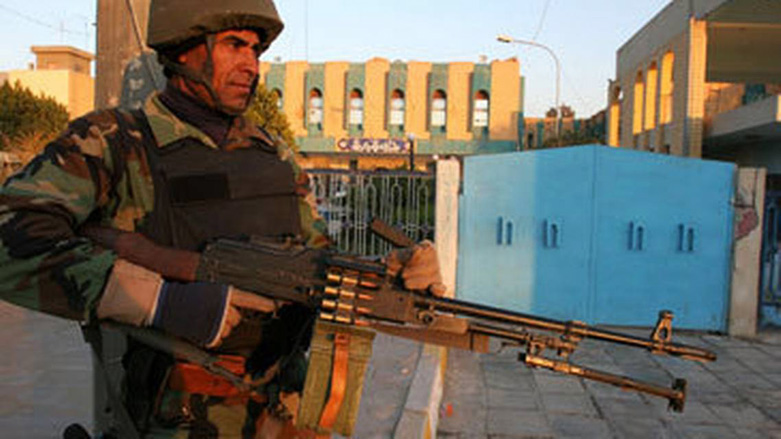US offers $15M for info on IRGC planner of 2007 Karbala attacks

WASHINGTON DC (Kurdistan 24) – The US is offering up to $15 million “for information on the financial activities, networks, and associates” of Abdul Reza Shahlai, a senior commander in the Qods Force of Iran’s Islamic Revolutionary Guard Corps (IRGC.)
The State Department’s Special Representative for Iran, Brian Hook, made that announcement on Thursday, as he explained that Shahlai was now in Yemen, where Iranian-backed Houthi rebels are fighting the internationally recognized government, backed by Saudi Arabia, in what is essentially a proxy war between the two Middle Eastern states.
Hook described Shahlai’s “long history of attacks” against the US and its allies, which go back over a decade, to 2007, when he was behind the planning of a sophisticated assault on the headquarters of the Karbala provincial government. The attackers, disguised as an American security team, managed to gain access to the compound, and their assault resulted in the death of five US soldiers.
In 2011, Shahlai “funded and directed a plot to assassinate the Saudi ambassador” to the US, Hook explained. He also plotted “follow-on attacks” that, had they been carried out, could have killed as many as 200 Americans.
The US first sanctioned Shahlai in 2008, under a presidential order targeting individuals who threatened Iraqi and Coalition forces. Ahmed Hassan Kaka al-Ubaydi, a Sunni insurgent, was also sanctioned then.
“A former Iraqi Intelligence Service officer and a Ba'th Party official,” according to the US Treasury Department, Ubaydi operated around Kirkuk, where his violence included directing the assassination of Kurdish figures.
Two weeks ago, a US Navy warship interdicted a “significant cache” of “suspected Iranian guided missile parts” bound for Yemen, the Associated Press reported. The cache was found on “a small wooden boat” which was stopped and boarded, because it failed to display the flag of any country.

Those are “the most sophisticated weapons seized by the US Navy to date” in relation to Yemen, Hook explained, making Shahlai’s current presence in Yemen all the more disturbing to US officials.
Expanding Iranian Threat?
But US concerns extend beyond Yemen. “There is fresh intelligence of a potential Iranian threat against US forces and interests in the Middle East,” CNN reported on Tuesday, citing “several US defense and administration officials.” However, CNN provided no details.
Subsequently, The New York Times reported that Iran was “secretly moving missiles into Iraq” and had built up “a hidden arsenal of short-range ballistic missiles” in the country.
Iranian-backed Shiite militias “have effectively taken control of a number of roads, bridges, and transportation infrastructure” in Iraq. Tehran is using those militias to transport the missiles, according to the Times.
The missiles pose a threat to Israel and Saudi Arabia, it said. During the 1991 Gulf War, Saddam Hussein launched 39 missiles at Israel from Mount Sinjar, where Iranian-backed militias now have a presence.
In September, Iran launched a major attack on Saudi oil facilities. However, the US response was flaccid, and senior national security figures expressed concern that the US had not done enough to deter Iran from future attacks.
Read More: Pompeo calls attacks on Saudi oil facilities 'act of war,' as Trump promises new Iran sanctions
Sen. Lindsey Graham (R, South Carolina) warned then that the Iranians “are clearly not going to stop until they pay a heavier price.”
Last month, CENTCOM Commander, Gen. Kenneth McKenzie, while attending a security conference in Bahrain, told journalists “it is very possible [the Iranians] will attack again.”
“It’s the trajectory and the direction that they’re on,” he later said. “The attack on the oil fields was stunning in the depth of its audaciousness.”
